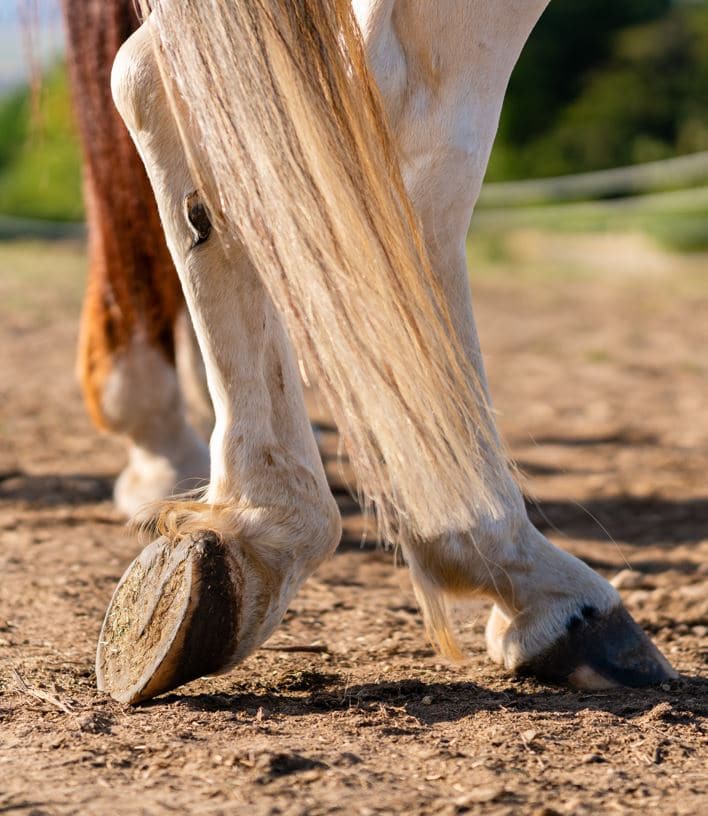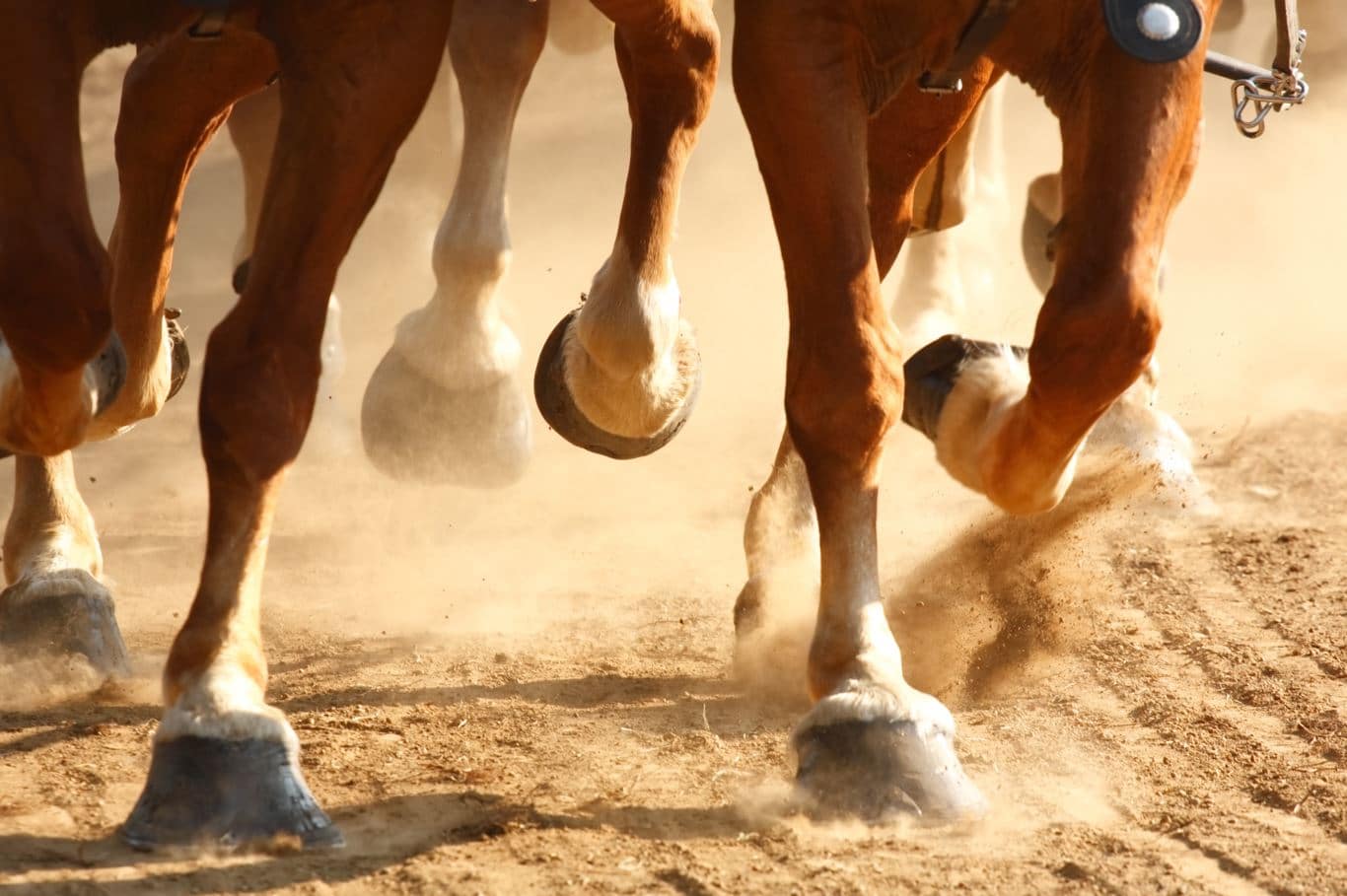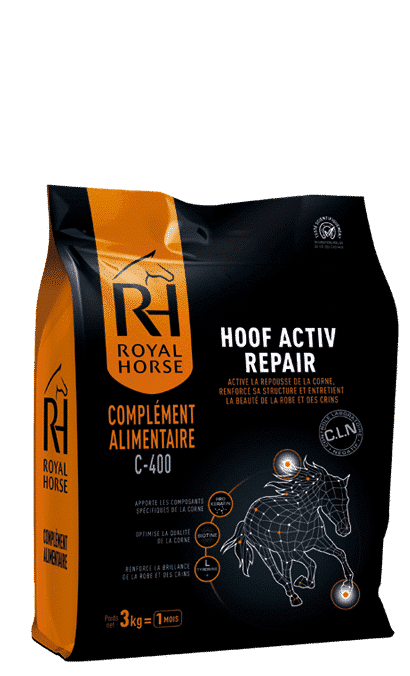The horse has the particularity to rest on its four hooves. Highly vascularized, the horse’s hooves – whether for sport, racing or leisure – require special attention.
Horse’s hoof : what daily maintenance ?
Recognizing and maintaining a healthy horse’s hoof
To properly maintain a horse’s hoof, it is essential to observe it daily. The horn of the hoof wall should not be damaged. The fork and gaps should be healthy, free of foul odors and dry.
Before and after each session, it is necessary to clean the horse’s feet in order to remove any foreign element (straw, sand, stones…) and to check the condition of the forks and the sole. An ointment (often called horse hoof grease) can be applied 2 to 3 times a week on dry feet to nourish them.
The Farrier’s Role
Every 4 to 6 weeks, a professional must intervene to trim the hooves – which grow about one centimeter per month – and eventually change the horseshoes. The growth of the horn will be controlled and rectified in order to preserve the cushioning role of the foot and the quality of the plumb line. The farrier may also prescribe special care if he deems it necessary. On the other hand, if the horse is barefoot, trimming should be done every 3 to 4 months.
Cracked or damaged horse hoof : how to treat it ?
The impact of living conditions on the health of a horse’s hooves
The climatic conditions and the place where the horse lives have a considerable impact on its feet. An environment that is too humid (meadow in winter, soiled stall…) will cause excess humidity that is detrimental to the horse’s hooves, which can lead to rotting of the forks. Dryness can also damage the hoof by making the horn brittle, which can lead to a split hoof.
The impact of living conditions on a horse’s hoof health
Climatic conditions and the place where the horse lives have a considerable impact on its feet. An environment that is too humid (meadow in winter, dirty stalls, etc.) will cause excess humidity that is detrimental to the horse’s hooves, which can lead to rotting of the forks. Dryness can also damage the hoof by making the horn brittle, which can lead to a split hoof.

How to care for a horse’s hooves in case of problems?
A brittle hoof can be moisturized with water and/or a care oil. If the horse suffers from rotten forks due to excess moisture, it is advisable to apply a product based on Norway tar. In the event of more serious problems such as bleeding, anteaters or sows, it is necessary to alert the veterinarian and the farrier as soon as possible to find an appropriate treatment protocol, whether the horse is in shoes or not.
The role of food in the maintenance of the horse’s hooves
Feeding your horse well is a key parameter to preserve its health, but also that of its hooves. His diet must cover his needs in vitamins, trace elements and minerals in order to help the body produce quality horn.
Biotin is a vitamin known for its beneficial impact on the horse’s coat and dander: it promotes horn and hair growth, a shiny mane and a healthy horn. It is therefore often recommended to supplement the horse with biotin to stimulate hoof growth and improve horn quality. In C-400 Hoof active repair, biotin combined with Prokeratin® promotes good quality horn and healthy dander. The hoof is made up of keratin, among other things.
Daily maintenance, quality nutrition and proper care are key elements to ensure the good health of a horse’s hooves. Because it is well known, “No feet, no horse”!
Royal Horse recommendation : C-400 : FEED SUPPLEMENT FOR HORSES




